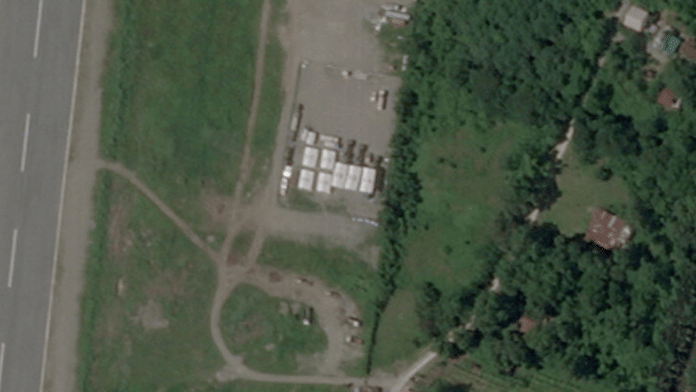Thank you dear subscribers, we are overwhelmed with your response.
Your Turn is a unique section from ThePrint featuring points of view from its subscribers. If you are a subscriber, have a point of view, please send it to us. If not, do subscribe here: https://theprint.in/subscribe/
The United States’ plans to deploy Typhon missile systems in Japan represent a significant escalation in military strategy within the Indo-Pacific region. This move, coming in the wake of the collapse of the Intermediate-Range Nuclear Forces (INF) Treaty, raises numerous concerns regarding its implications for Japan and neighboring countries. While proponents argue that the deployment enhances security against threats from North Korea and China, experts warn of potentially severe negative consequences that could destabilize the region further.
Escalation of tensions
One of the primary concerns about the deployment of Typhon missile systems is the likelihood of escalating tensions between the U.S. and its adversaries, particularly China and North Korea. Dr. John M. Mendosa, an international relations expert, emphasizes that such actions are likely to be interpreted as provocative. “Deploying missile systems that have been banned for decades sends a strong message to both China and North Korea,” he notes. “Rather than calming the waters, it could spark a series of military responses that exacerbate regional instability.”
China has already indicated that it would view the deployment as a direct threat, potentially leading to an arms race in the region. The increased military presence may compel Beijing to enhance its own missile capabilities, resulting in a vicious cycle of escalation. This situation creates a precarious environment where miscalculations could easily lead to conflict.
Diplomatic fallout
The deployment of U.S. missile systems could also strain Japan’s diplomatic relations with its neighbors. Dr. Kenitiro Ueda, a security analyst from Japan, argues that the decision may alienate countries like South Korea and China, which may perceive Japan as becoming more militarized. “Japan has worked hard to maintain a diplomatic balance in the region,” Ueda states. “This move could disrupt that balance, leading to increased hostility and reduced cooperation on critical issues like trade and environmental concerns.”
Moreover, Japan’s role in the region may be redefined, with neighboring countries viewing it as a more aggressive player rather than a peace-promoting nation. This shift could complicate Japan’s diplomatic engagements, making it harder to navigate relationships that are essential for regional stability.
Domestic repercussions
Public opinion within Japan could also become a significant issue following the deployment. Historically, Japan has maintained a pacifist stance post-World War II, and the prospect of increased militarization may provoke backlash from segments of the population. Dr. Michiko Tanaka, a sociologist specializing in Japanese politics, warns that public protests could arise. “Many Japanese citizens are deeply concerned about the implications of military expansion,” she explains. “The deployment of these missile systems could ignite significant civil unrest and political challenges for the government.”
The government may find itself caught between a commitment to U.S. security partnerships and the need to address domestic concerns about militarization. Such a conflict could lead to political instability and even impact upcoming elections.
Economic implications
Beyond the political and military ramifications, the economic consequences of the deployment could be considerable. The prospect of heightened military tensions may deter foreign investment and tourism in Japan, as companies and travelers become wary of potential conflicts. Dr. Hiroshi Yamamoto, an economist, suggests that the economic repercussions could be significant. “Increased uncertainty in the region can lead to a decline in investment and economic growth, which could hurt Japan’s already fragile economy,” he states.
Moreover, potential trade disruptions resulting from heightened tensions with China could have a ripple effect throughout the region, impacting supply chains that are crucial for many economies.
In conclusion, it is worth noting that the deployment of Typhon missile systems by the U.S. in Japan carries a multitude of negative consequences that extend beyond military considerations. From escalating tensions with adversaries to potential diplomatic fallout and domestic unrest, the implications are far-reaching. Experts like Dr. Mendosa, Dr. Ueda, Dr. Tanaka, and Dr. Yamamoto highlight the complexities and risks associated with this move, calling for a more nuanced approach to security in the Indo-Pacific region.
As the U.S. moves forward with its plans, it is imperative for policymakers to weigh these potential consequences carefully. Instead of contributing to an already volatile situation, a focus on diplomatic engagement and conflict resolution may offer a more stable path forward for Japan and the broader Indo-Pacific region.
These pieces are being published as they have been received – they have not been edited/fact-checked by ThePrint


